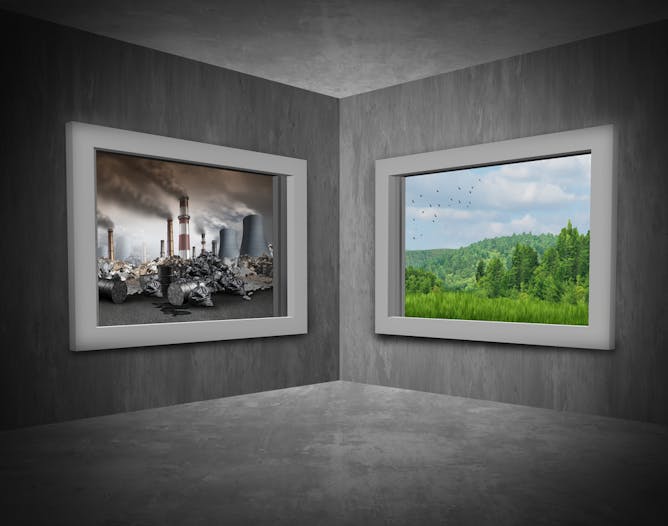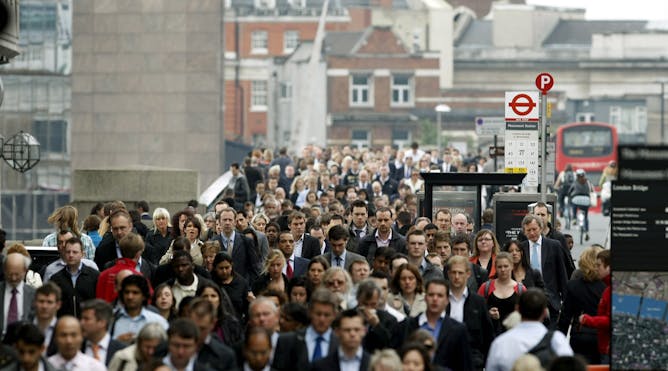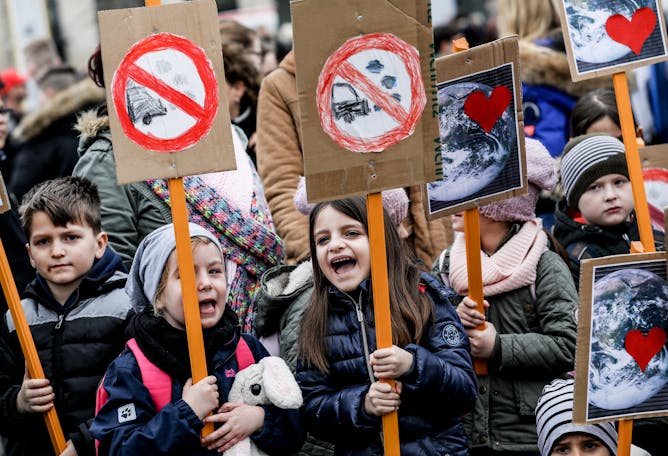|
|
|
Editor's note
|
|
There is no bigger story than climate change and the threat it poses to life on Earth. Despite this, there have been several missteps in the media’s reporting on it over the last few decades. You may have seen “debates” on TV between climate scientists and sceptics who have little scientific background – the one-on-one format suggesting a false equivalence between the two.
In newspapers and online, media outlets have often given platforms to writers whose political leanings – more than any rigorous engagement with the science – have influenced their outlook on climate change. And that’s only considering the times climate change has made the news at all. Even in 2019, as experts warn we have vanishingly little time to divert catastrophe, major TV networks in the US dedicated more coverage to Britain’s royal baby during one week in May than they had to climate change over the whole year up to that point.
This is an area in which The Conversation has sought to define itself. The science of climate change invites all kinds of speculation and opinion, but without the expertise to support it, much of it is worthless. All of our authors must be involved in active research within the field they wish to write about and they must disclose any relevant affiliations or funding sources. More often than not, the big environmental stories of the day lead our coverage. The climate crisis is serious – telling the story right is paramount.
That’s why we were excited to join the Covering Climate Now initiative. Along with more than 250 other media outlets, The Conversation has committed to running a week of coverage focused on the climate
crisis, starting on September 16 and culminating on September 23 with the UN Climate Action Summit in New York. Throughout the week, we’ll bring you news and analysis direct from the experts who first raised the alarm on climate change and continue to be the most trusted source among the public.
Just in the last year, the climate strikes and Extinction Rebellion have brought people onto the streets to protest global inaction on climate change. The scientific debate is now settled – climate change is here.
Still, misconceptions about climate science abound and many underestimate how severe the threat is. The result is that meaningful action is delayed while emissions continue to rise. People want to hear the
solutions and our authors are uniquely placed to describe the many ways life can and must change in order for societies to thrive in the 21st century.
Since climate change will affect every aspect of our lives, we wanted to commission stories that covered many different angles and reflected the diversity of expertise our authors could share. We spoke with experts across climatology, engineering, literature and psychology to understand how climate change will remake our world and what our response to it should be.
Our aim is to focus the attention of the world’s brightest minds on tackling the burning issue of our time. To keep up to date with all of it, tell your entourage to subscribe to this daily newsletter and our monthly climate action newsletter.
|
Jack Marley
Commissioning Editor
|

|
|
Top stories
|

Make an informed decision based on the facts.
Lightspring/Shutterstock
Mark Maslin, UCL
Misinformation and lies are regularly used to undermine the science of climate change – here's how to see through the fog.
|

Most of us believe that other people are not worried enough about climate change.
Felipe Trueba/EPA
Bobby Duffy, King's College London
We know less than we should, but we're worried anyway. By the author of The Perils of Perception: Why We’re Wrong About Nearly Everything.
|

‘Fridays for Future’ demonstration in Berlin, March 29 2019.
FELIPE TRUEBA/EPA-EFE
Caroline Hickman, University of Bath
Children are more attuned to the climate crisis than adults realise. We must listen to them.
|
Politics + Society
|
-
Asif Hameed, University of Southampton
The UK Supreme Court's decision will have profound implications for how and why a prime minister can suspend parliament.
-
Lindsey Flewelling, University of Colorado Denver
Despite many Irish-Americans claiming Protestant descent, unionists throughout history have found their rallying cries falling on deaf ears.
-
Simon Keegan-Phipps, University of Sheffield
Land of Hope and Glory seems somehow inappropriate given the current state of British politics.
-
Matt Howell, Cardiff University
For families living in poverty, making their 16 or 17 year old child homeless may be the only option to keeping them all afloat.
-
Deborah Madden, University of Manchester
The sequel to Margaret Atwood's dystopian classic provides an apt moment to consider attacks on women's rights across the world.
|
|
Science + Technology
|
-
Nick Longrich, University of Bath
Every cloud has a silver lining – even the debris cloud from an asteroid impact
-
Chris McKnight, University of St Andrews
Diving animals are incredible athletes.
-
Ashvanti Valji, Cardiff University; Matthias Gruber, Cardiff University
What kind of curious are you? Scientists explore different types of curiosity and their home in the brain.
|
|
Environment + Energy
|
-
Tim Jackson, University of Surrey
At current rates of reduction, the UK's fair carbon budget will be spent in just four years' time.
-
Jenni Barclay, University of East Anglia; Roger Few, University of East Anglia; Teresa Armijos Burneo, University of East Anglia
Many return to dangerous evacuation zones fully understanding the risks. New research explains why.
|
|
Health + Medicine
|
-
Tim Jones, University of Bristol; William Hollingworth, University of Bristol
The number of surgical procedures for chronic shoulder pain in the UK has nearly doubled in ten years. But does it work?
|
|
Business + Economy
|
-
Sofia Izquierdo Sanchez, University of Huddersfield
Detailed analysis of 1,300 movies finds that women actors earn an average of US$1.1m or 25% less than their male colleagues.
|
|
Cities
|
-
Anupam Nanda, University of Reading
The 'superblocks' are expected to have massive benefits for health and well-being – but it takes good governance.
|
|
Arts + Culture
|
-
Sam Vettese, Edinburgh Napier University; Ian Singleton, Edinburgh Napier University
There is no solution to the unethical, unsustainable fashion industry – yet
|
|
Education
|
-
Nick Marsh, University of East London
For decades, those working in social care focused on the risks children face in their family home. But what about when they leave the front door?
|
|
| |
Featured events
|

|
Dalhousie Building, Dundee, DD1 5EN, Dundee, Angus, DD1 5EN, United Kingdom of Great Britain and Northern Ireland — University of Dundee
|

|
Julian Study Centre Lecture Theatre, University of East Anglia, Norwich , Norfolk, NR4 7TJ, United Kingdom of Great Britain and Northern Ireland — University of East Anglia
|

|
Northampton Square, London, Islington, EC1V 0HB, United Kingdom of Great Britain and Northern Ireland — City, University of London
|

|
Northampton Square, London, Islington, EC1V 0HB, United Kingdom of Great Britain and Northern Ireland — City, University of London
|
|
|
|
| |
| |
| |
| |
| |
|
|
|
|
|
|
|